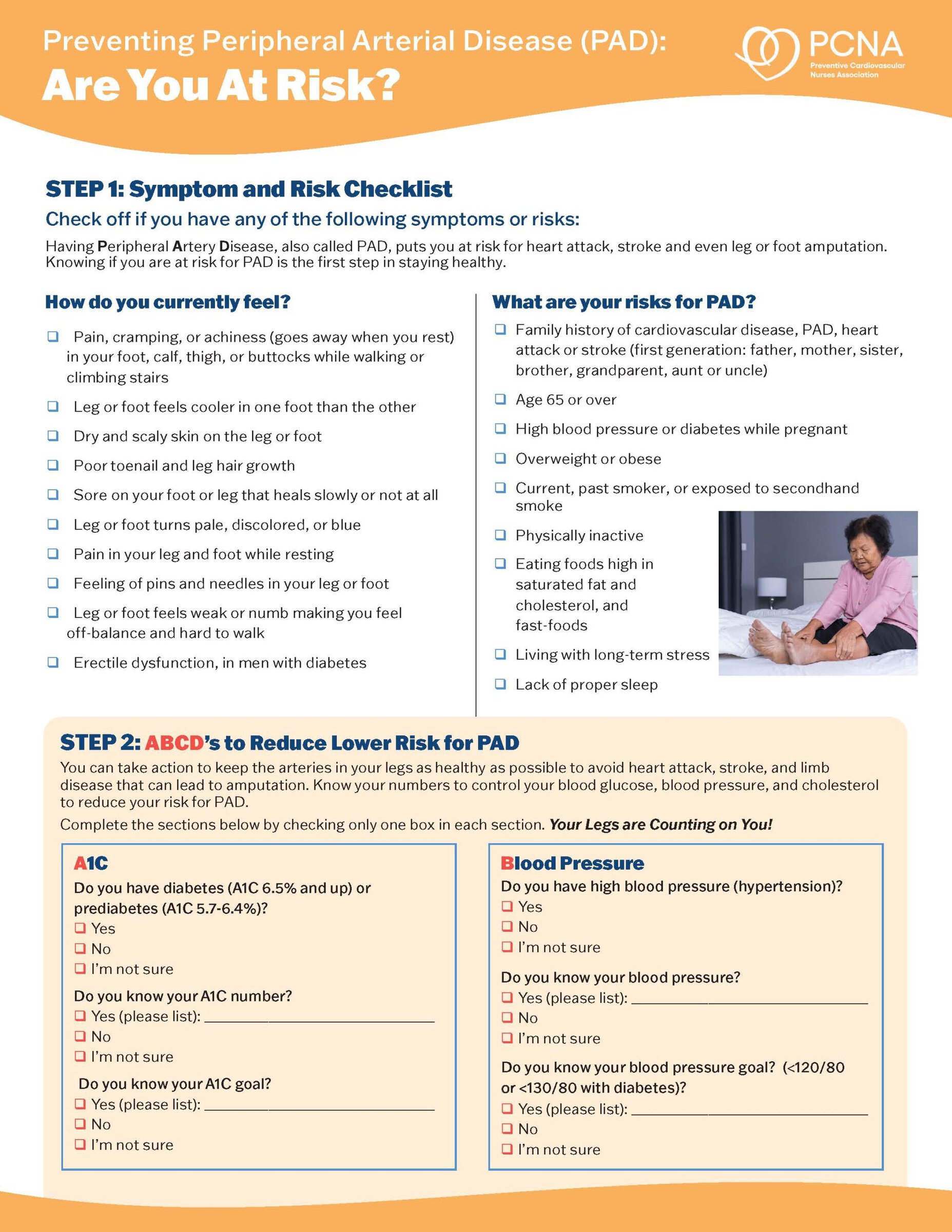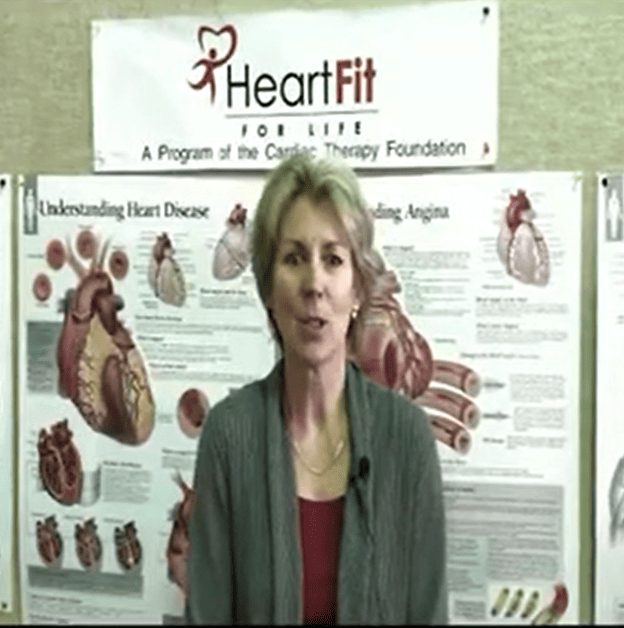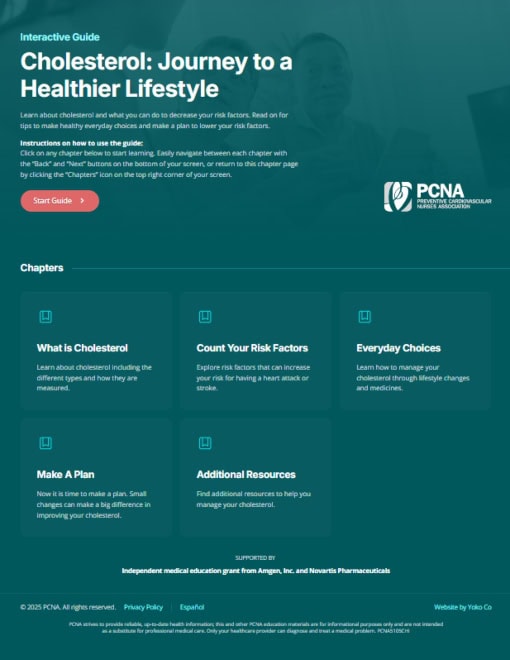The available novel diabetes therapies and their impact on cardiovascular and cardiometabolic risk reduction are discussed by guests Chris Memering, MSN, RN, CDCES, BC-ADM, FADCES, and Sun Kim, MD. A particular emphasis on GLP-1 receptor agonists and the patients for whom they are guideline-recommended, as well as ongoing research, are also covered.
Earn 0.6 CE contact hours, including 0.6 pharmacology from listening to the podcast episode and completing the course components.
Supported by an independent medical education grant from Novo Nordisk.
Episode Resources
- GLP-1 RAs: An updated review of head-to-head clinical studies
- GLP1-RAs: CV benefits & mechanisms of action (Ussher & Drucker)
- GLP-1 & Underlying Beneficial Actions in Alzheimer’s disease, Hypertension, & NASH
- Incretins & microvascular complications of diabetes
- Management of Type 2 Diabetes 2022. A Consensus Report by ADA, EASD. doi: 10.2337/dci22-0034.
- ADA Standards of Care in Diabetes 2023
- AACE Consensus Statement: Comprehensive Type 2 Diabetes Management Algorithm–2023 Update.
- Cardio-renal-metabolic connection: a review of the Evidence (PDF)
Welcome to Heart to Heart Nurses, brought to you by the Preventive Cardiovascular Nurses Association. PCNA’s mission is to promote nurses as leaders in cardiovascular disease prevention and management.
Geralyn Warfield (host): Welcome to the first of a three-part miniseries focused on type 2 diabetes, GLP-1 receptor agonists, and cardiovascular disease.
This episode is available for CE contact hours. Please be sure to follow the link in the show notes, and to complete your posttest and access your CE certificate.
In today’s episode, we’ll be discussing novel diabetes therapies, particularly GLP-1 RAs and their impact on cardiovascular disease and cardiometabolic risk reduction. I have two exceptional guests with me today, Chris Memering and Sun Kim. Sun, could you please start us off by introducing yourself, please?
Sun Kim (guest): [00:01:00] Yes. I am an Associate Professor of Medicine in the Division of Endocrinology here at Stanford University. My clinical expertise and research focus on type 2 diabetes.
Geralyn Warfield (host): Thank you so much. Chris, could you introduce yourself to our audience?
Chris Memering (guest): Sure. My name is Chris Memering, and I am an Inpatient Diabetes Care and Education Specialist from North Carolina. I’ve been a nurse for almost 21 years, and for 16 of those years, the DCES, so Diabetes Care and Education Specialist, and certified in that for about 15, and been board certified at Advanced Diabetes Management for the last year.
And being in the hospital, I see everyone that comes here with diabetes. So, my age ranges last month were from a three-year-old to a 90-year-old.
Geralyn Warfield (host): That is definitely quite a range, and I’m sure our audience can tell that both of our guests today are going to bring a great deal of expertise to our conversation. As our audience probably recognizes, there are strong links between [00:02:00] cardiovascular disease and diabetes.
And many healthcare professionals kind of struggle finding themselves trying to manage both of those diseases. both risk factors and then the diseases themselves. So, if we could start our conversation today discussing guidelines-directed medical therapies, and what that looks like for both of these diseases. Chris, maybe you could start us off.
Chris Memering (guest): Sure. So, all of the algorithms for treating cardiovascular disease, cardiometabolic disease, including diabetes, they all begin with lifestyle intervention underlying all of the medication therapy (and tune in to episode three of this series for more on that).
However, we’ve got these different governing bodies, if you will: the American Association of Clinical Endocrinologists, the American Diabetes Association, European [00:03:00] Association on the Study for Diabetes, and other guidelines that do recommend the use of some novel therapies with diabetes management, just medication pieces.
These include the glucagon-like peptide-1 receptor agonist, which is what we’re going to talk about today. And the guidelines have all changed in the last 18 months or so, to actually have these be kind of the premier and starting point when we’ve got known cardiovascular disease, or if there’s high risk for cardiovascular disease, stroke, even chronic kidney disease—independent of what those individualized glycemic targets may be.
And these are now frontline medications ahead of what we all knew as the mainstay of metformin as the starting drug approved for type 2 diabetes care.
So, we also see these medications in some higher doses approved just for obesity care, which some of the research last summer was fascinating, and being able [00:04:00] to delay the onset of type 2 or inhibit the onset of type 2 diabetes.
And so, we see these cardioprotective benefits, and our primary care doctors, our cardiology practices are using these even more.
Our ACE algorithms also look at these medications, interventions, in addition to lifestyle, as obesity care, if there’s stage 2 obesity present and definitely in stage three, as opposed to just our lifestyle trying to jump right in to getting some more assistance to the body.
And then overall treating the cardiometabolic needs for people with diabetes as a secondary, tertiary. prevention for the cardiovascular complications of diabetes.
Sun Kim (guest): Chris, that was a really great overview of how the landscape has really changed. I remember this intense focus on having metformin be first. But I think we’re moved on to an era of more personalized medicine and really looking holistically to figure out what medications may [00:05:00] work the best for patients at their current stage as they present to us.
One thing, you know, I want to remind the audience, which I cannot even believe that this was back in 2008, it just seemed like yesterday, when the FDA really mandated that new drugs for type 2 diabetes conduct cardiovascular outcome trials to prove safety.
I don’t know if you guys remember this brouhaha with rosiglitazone perhaps increasing risk for cardiovascular disease. But that really led to a different pathway about how we think about medications for diabetes, and how it’s not really just about reducing the hemoglobin A1c, but really showing that these drugs, you know, are safe for our patients.
And I think, I mean, I was surprised–and I would say pleasantly surprised—that these medications, especially the class, the GLP-1 receptor [00:06:00] agonists, not only were safe for our patients, but they had superior cardiovascular outcomes. I mean, that is such a gift, I think.
And just for the audience that aren’t always poring over these trials, I want to remind everyone that in general, the primary outcomes for these cardiovascular outcome trials focused on something called 3-poiint MACE (major adverse cardiovascular events), and they usually include non-fatal myocardial infarction, non-fatal stroke, and death.
And the good news is, several of the long acting GLP-1 receptor agonists have shown significant reduction in MACE.
So again, these drugs that were developed to reduce hemoglobin A1C, to improve glucose, not only does that, but also, they [00:07:00] have a significant effect on decreasing a major complication of type 2 diabetes.
And I want to mention if you’re a stickler for the using the drugs that had these outcomes, I want to mention that there have been three: liraglutide, semaglutide injections, and dulaglutide.
So, some people like to think of drugs as having a class effect, but I will mention within the GLP-1 receptor agonist class, some of the drugs have shown this benefit and some have not. But none have shown harm to our patients with diabetes.
Chris Memering (guest): Yeah. And so, in just you know, learning more and more about these medications, it’s always nice to know those studies. So, if anyone is looking for those direct studies in our show notes, we actually have a great review by Ussher and Drucker of these [00:08:00] specific, the cardiovascular outcome trials. It’s from Nature Reviews Cardiology. It was published earlier this year.
And the thing I really liked about this review was that they discussed the preclinical and the clinical studies, and gave really great graphic and descriptive representation of the overall effects of the GLP-1 receptor agonists on the different parts of the body. But then looked at how each one of these did, looked at how they may help in terms of the cardioprotection, and which ones from the group of medicines.
The craziest piece that I love about this medication, on the diabetes side of everything, is that it actually helps that improvement and reduction in loss of beta cells from these medications. So, we get less glucose variability, which then helps decrease the effects of the hyperglycemia on the system and how that hyperglycemia and that glucose variability, that’s what we’re looking for when we’re talking about cardiovascular effects and how that can [00:09:00] be enhanced and helped with all this.
Sun Kim (guest): Yeah, I really think the story is evolving. You know, after these outcome trials, obviously the next question is, well, how are these drugs doing that? And I think you mentioned some really fascinating potential mechanisms. I think the effects on beta cells are still a story to be told because it’s really hard to study beta cell function in humans versus rodents, and a lot of the studies are done in rodents, but I think that’s going to be an evolving story.
I think some of the things that we know for sure that these drugs have an effect on are like multiple pathways that we know affect cardiovascular risk. And they do include, you know, hemoglobin A1c lowering, so improvement in glucose, and what you mentioned is glucose variability, which a lot of people are excited in [00:10:00] evaluating as a risk for cardiovascular disease.
But of course, in addition to glucose-lowering, there is weight loss. You know, I still remember days where, you know, we were using drugs that helped lower glucose, but they may have an impact on increasing weight. And that’s always a difficult sell to our patients as we’re trying to help them with one aspect of their health but knowing that the side effect may be something very unwanted.
It is very rewarding to tell patients, “Look, there’s this class of drugs. Not only does it help lower your glucose, it can also help lower your weight.”
In addition, there’s, of course, blood pressure-lowering.
And in addition to all of these effects, with weight loss also comes additional improvements in health, such as changes in cholesterol.
A lofty term people throw around is [00:11:00] ‘inflammation.’ But type 2 diabetes is associated with inflammation in many parts of your organs, including your fat cells, and it may help reduce inflammation.
So, there are multiple potential mechanisms, and it may just not be one, one of these things, but a combination that really helps patients.
I will say there has been a flurry of research in this area and tons of meta-analyses because now there are so many cardiovascular outcome trials. And I think, in our show notes, there are some studies that have been included.
And I will say for sure, lowering in hemoglobin A1c has been associated with deep improvement in MACE.
There are some post doc analyses looking at improvement in urine albumin to creatinine ratio in improving MACE. And of course, we wholeheartedly believe that the weight loss helps. And I think that story is [00:12:00] going to unfold further in the future.
Chris Memering (guest): Yeah, it’s to the point where we’re, we’re seeing even more other pieces of the body.
We’re looking at our liver and our brain and how these drugs may be helpful in even Alzheimer’s disease and, NASH, or now it’s called MASH, the metabolic dysfunction, steatohepatitis. But just looking at all that anti-inflammatory effects on the cardiovascular system. So, it’s fascinating to watch the story unfold and just see how helpful these medications can become.
And you mentioned the weight loss piece of this for sure. I mean, I know that I talk to patients about what medication plan we may start to work with. And that seems to be the one thing that they gather, they get onto. Where, even though most of these medications are injectables, we start talking about those benefit pieces from that, and that’s one of those that kind of gets them past that fear of injection even.
All right. So, [00:13:00] Sun, I have another question for you on this. So last year’s big news out of the European Association and the Study of Diabetes, meeting—which just happened last week, for this year—last year, the big deal was that the GLP-1 receptor agonist and obesity treatments actually helped to prevent type 2 diabetes from occurring in half of the cases of people who were starting to take this. So, what’s the latest from last week’s meeting for this year EASD?
Sun Kim (guest): Right. I’m still recovering from jet lag, but I think it’s sort of the excitement that, you know, we both have about these class of drugs. So, Geralyn and you mentioned this term metabolic, cardiometabolic, you also, brought in, you know, NASH, which is now MASH, so I think there’s an excitement about not just single mindedly focusing on lowering glucose, but looking at the whole milieu of the patient and improving, you know, the heart, [00:14:00] the kidney, and so there’s this new term like cardio kidney metabolic.
But I think like you, you know, what about the liver? What about the brain? It’s really top-down metabolic. So, I even think ‘metabolic benefits’ encompasses, you know, what we’re trying to achieve. I think there was a lot of interest in improving holistically the whole person and not just single handedly focusing on glucose-lowering.
I will also say there is so much excitement and this was also true at the American Diabetes Association meeting. We call it ‘All about the Gs.’ So today we’re talking about one of the Gs, GLP-1 receptor agonists. But as you know, you know, we do have drugs that are now dual agonists. It’s GLP, as well as GIP. And then, you know, there’s another one coming out in the pipeline, the 3G (so it’s GLP-1, GIP, [00:15:00] and glucagon).
And there’s lots of combinations and new therapies. So, you’re going to see more options for patients in this realm in the future.
Geralyn Warfield (host): We have been speaking with Sun Kim and Chris Memering about GLP-1 receptor agonists and the excitement that’s building around all of the kinds of mechanisms of action and how they might be used in patients with not only diabetes but with other diseases.
We’re going to take a quick break and we will be right back.
Geralyn Warfield (host): Welcome back to our continuing discussion about novel diabetes therapies in cardiovascular disease risk reduction.
We’ve talked a little bit about mechanism of action and how these particular drugs work. I hope we could talk a little bit more about the types of patients for whom they might be prescribed.
Sun Kim (guest): Yes, of course. I think there’s clear consensus that patients with type 2 diabetes with established atherosclerotic [00:16:00] cardiovascular disease, in particular, benefit the most.
However, that doesn’t mean that this should only be reserved for this high-level tier, because as we’ve seen, these medications really have multiple benefits for patients, and they can all also be disease modifying.
Chris mentioned, even the fact that potentially these medications started early could prevent diabetes. We’re not at that stage, but you could see the potential for these drugs. But currently in guidelines, definitely patients with type 2 diabetes with established atherosclerotic cardiovascular disease.
And then guidelines also indicate that patients with diabetes at high risk for atherosclerotic cardiovascular disease may also benefit. And different guidelines use different criteria for this. But most agree that [00:17:00] individuals with chronic kidney disease, especially stage 3 or higher may benefit.
And then the American Diabetes Association also uses potentially age: 55 and greater with obesity, hypertension, smoking, dyslipidemia, and proteinuria as a group that is also at high risk. Other guidelines may suggest using this class of medications for individuals who may have 10-year cardiovascular risk of 10% or greater. And there’s multiple different algorithms you can use to calculate that risk.
Now, of course, I think Chris already mentioned that these drugs are also indicated for individuals with obesity. And the criteria for that are body mass index 30 or greater, or 27 with you know, comorbidities associated with weight.
And obviously, they would already be indicated for people with [00:18:00] diabetes, but it can include other comorbidities like hypertension, dyslipidemia, and there’s a host of others, but those are the ones, especially if you’re trying to get insurance approval.
And so, I think patients with diabetes with overweight/obesity are a great class. And at the recent meeting, there was this focus on considering investing early in these drugs to modify the disease. Because we know that overweight/obesity has a tremendous impact on the pathophysiology also of diabetes, so addressing that can really lead to honing in on the root cause to allow patients to have a longer, healthful life.
Chris Memering (guest): Right. So, weight management’s also become an issue with people with type 1 diabetes. Then you have to remember [00:19:00] these medications, they are not indicated for the treatment of type 1 diabetes, but they are indicated for the treatment of weight management.
So, when we start to see that increase in weight, that obesity happening for somebody who has type 1 diabetes, we’re also seeing these medications used in that population—and with great results with it as well.
These are people that are injecting exogenous insulin to live and that has its own risk pieces with it, including that weight gain, and some insulin resistance that can come with it, especially with long-term diabetes. And then that increases the risk for cardiovascular disease. So, we are seeing it in those patients as well.
Again, it’s there for the weight management as it’s not an indication for those with type 1 diabetes.
Geralyn Warfield (host): One of the roles that healthcare professionals play is to help to discuss the risks and benefits of therapies with their patients. And now that we’ve discussed quite a lot about the benefits of these particular kinds of pharmacotherapies, but what are some of the [00:20:00] side effects with this class of medications?
Chris Memering (guest): Yeah, these side effects have been in the news quite a bit recently, as we’re seeing the medications used for obesity treatments.
And actually, there was a new FDA warning or side effect listed now for risk of ileus. The main adverse effects reported in these trials were all GI-related. The medication works partially by slowing down our digestion of foods and we don’t eat quite as much with these.
So, there is that slowing of the gut down, which means that the GI-related side effects include nausea, vomiting, diarrhea.
The other adverse reactions are injection sites issues with the injectable medications, of which all but one are. And they do appear to be highest with the short-acting versions, so the daily or the twice-daily injections. And less issues with the long-acting, the once-weekly versions.
And sometimes it depends on which one [00:21:00] is being prescribed. One company’s version of the once weekly may be more tolerated than the other for people. And sometimes we’re starting with one, just because of the short -acting version they had been on, but they don’t tolerate the once-weekly. So, there’s room to move with trying to try the other versions of these.
You know one of the side effects we talk about the significant weight loss. Technically, it’s a side effect from these medications, but it’s a good side effect with those. And it’s one of the desired outcomes.
And as long as it’s not secondary to not tolerating any nutrition—so, if we’re not able to eat at all, and then we get a malnutrition issue, then we’ve got to take a step back.
The risk of hypoglycemia is pretty low. It really depends on what other medications are being used along with the GLP-1 receptor agonist.
And tolerability sometimes also comes with exposure to the medication. So, there’s this titration schedule that we have [00:22:00] with these. We can’t just always necessarily jump to the highest dose. And there’s a reason for that titration schedule. I know people want to try and get it on board and get to that higher dose, but we do really recommend keeping in that titration schedule so that we can have less side effects and the body can get used to the medication.
The other piece, and, you know, half of my job is the education of people in understanding their disease and their medications with this too, is the mindfulness about eating. We want to stop eating when you’re no longer hungry, not full. The stomach takes longer to feel full than your body to say you’re no longer hungry.
So, it’s about mindful eating with that too, because otherwise you can end up with huge amounts of bloating, abdominal distention and just issues from that slowing of this food. And then we get more benefit from this, too, as we start to eat less with those meals and we eat less postprandial glucose excursion with the changes in the food, but that [00:23:00] mindful eating when we’re taking with these medications.
Sun Kim (guest): That’s so great. all the information you just provided, I do also want to highlight because people get. So excited about starting these medications for their patients. They miss the education piece and I think patients really need to be prepared for these side effects.
I often have this animated graphic sheet to go over, you know, how to eat once you’re on a GLP-1 receptor agonist. Some of the things that you mentioned, such as mindful eating, but also not to have distracted eating, because I think people are always on the go and eating on the run or eating while, you know, watching Netflix, but really to have mindful eating.
And to focus on eating smaller portions, eating slowly. And I always tell people, “Do not try to overeat on these medications because you will definitely feel the side effects.”
I think some other side effects that maybe get less attention is there, you know, is [00:24:00] a small increase in heart rate. Interestingly enough, a lot of drugs that affect weight increase heart rate. It’s generally not clinically noticeable, but it can be for some patients.
And then, another sort of potential adverse effect that I’m really putting a focus on, is on progression of retinopathy and there is a dedicated trial called FOCUS, which is going to be looking at this question, that’s supposed to come on the next couple years. And so, I’m really excited to hear those results because when you’re giving someone a medication that you’re hoping to help, you obviously don’t want them to have adverse events that can be harmful to the patients.
Geralyn Warfield (host): Our discussion thus far has focused on GLP-1 medications, and are there any other novel therapies about which our audience should become familiar?
Sun Kim (guest): Yes, so I alluded to this already, but really a [00:25:00] lot of excitement about combination medication. There is already one that is currently available called tirzepatide, approved for patients with type 2 diabetes. It’s a dual agonist. So, it affects GLP-1 receptors as well as another gut hormone called GIP. So, I think the indications for that medication is going to grow and we will have more in the pipeline as well, including other gut hormones and other hormones in general that affect weight and the glucose axis.
We didn’t talk a lot about SGLT2 inhibitors, which also sort of grew up at the same time as GLP-1 receptor agonists. These drugs also had the surprising benefit of reducing cardiovascular events. There are also dedicated [00:26:00] cardiovascular outcome trials that show that these class of medications reduced major adverse cardiovascular events.
Sometimes I go to, you know, conferences, and there’ll be this debate, like, which one first, GLP-1 or SGLT2 inhibitors? And I always think, you know, why not both? But then I have to remind myself these medications are very expensive, and I work with patients all the time who have trouble affording these medications. So, there can be a time when we need to choose to use both.
There are slightly different indications for these drugs as well. I would say SGLT2 inhibitors may be better for patients with heart failure with reduced ejection fraction and chronic kidney disease. But the story definitely is evolving there.
And I think GLP-1 receptor agonists may be better for stroke.
But again, [00:27:00] we’re learning more and more. The crazy thing is, I think, the indications for these drugs keep growing. We didn’t talk about this, but there is a hint that GLP-1 receptor agonists in patients with obesity without diabetes may also have cardiovascular benefits. There was some hints and a teaser about the SELECT trial, so I am also looking forward to those results.
Chris Memering (guest): I love the’ more to come’ and those teasers that come out of conferences.
I agree with you about the choosing both if we can, with SGLT2 inhibitors and GLP-1 receptor agonists, if we’re able. I will tell you, my cardiologist would like to have both of them on board, if at all possible, but cost can be an issue, especially for patients on Medicare.
One of the things I love about the GLP-1 [00:28:00] receptor agonists is we also have them combined with some basal insulin as well. So, we can have this great copay cap for our Medicare patients, for their copays being no more than $35 for their insulin as long as it’s covered. Well, the ones that were combined with the GLP-1 receptor agonists, the basal insulins there, they’re included in that cap.
So now these people who really need both these medications can have them, and still be able to afford it.
And it’s a once daily injection for them, without having to necessarily add more injections on the diabetes step. But then I can also get the cardiovascular benefit from all of that too. And so sometimes there’s that piece.
I mean, the nice thing about the SGLT2 inhibitors is they’re a pill, so a lot of times it’s easier for people, but it’s also a matter of knowing and finding which versions on formulary. Sometimes it’s one company versus another. We have to try one, [00:29:00] you know, we still have. insurance catching up to standards, saying we have to put everybody on metformin first when actually these medications would be a lot better and keep the complications out there.
But we also want to make sure that we’re not enabling a disparity just because we know that these medications are expensive, and depending on what that coverage may be, we want to make sure that we’re not just discounting these medications because of that cost. There are programs that can help with some of those pieces.
Geralyn Warfield (host): Is there anything else that either of you would like to add?
Sun Kim (guest): This is truly an exciting time to practice medicine. As you have heard, the GLP-1 receptor agonists have really given us a tool to help patients, especially with type 2 diabetes, and patients who are struggling to control their weight.
In addition, these medications affect multiple axes, [00:30:00] including, you know, the heart, the kidneys, but also an evolving story on the liver and the brain. So really addressing multiple metabolic health of the patient.
My hope is that in addition, these medications help patients feel better. Because I think for patients, it’s really about how they feel and that that leads to patients eating better and exercising more. Thanks.
Chris Memering (guest): So, I would just add just some reminders from what we’ve already talked about, actually, with this too.
These, these medications aren’t without side effects. They’re not without some potential issues and problems, but the benefits can just so outweigh those problems, the side effects.
We need to make sure that we’re educating about the medication, what to expect, how to utilize the medicine. I mean, one of [00:31:00] the biggest things I remember to tell people is make sure you let it warm up to room temperature before you inject, because otherwise it really hurts, and burns. And so, it’s not just throwing a new medication at the person. It’s trying to help them understand why we’re doing this, what to expect from it, and how it’s going to help them in the long run.
And I think that that helps with any new medication, but I think that our colleagues in primary care and cardiovascular care need to remember those pieces as well, and it’s because they started with us in diabetes care, and endocrinology. And so, we got really good at remembering all these different pieces to educate about. And, as we expand those different uses. and the indications, that everybody is going to need to start to remember to talk about these and what to expect and, and when there’s a problem, when to call and those pieces.
But that [00:32:00] education and keeping the person involved in their care and at the center of care because at the end of the day, it’s all about them.
Sun Kim (guest): Chris, very well said. It’s definitely a shared decision-making. And because of the excitement about these drugs, I think sometimes, caregivers can forget to actually include the patient in the conversation and to really share with them, you know, why we’re excited about these medications.
But they do have side effects. There are no medications without side effects, but they can be tolerable if, you know, we take the approach that you outlined so well. Thanks.
Chris Memering (guest): Thanks. Yeah, no, it’s, it’s definitely something that diabetes care and education specialists really work towards is keeping, keeping that patient centered and keeping us all on that same team. So, I appreciate that.
Geralyn Warfield (host): I’d like to remind our audience that this episode is available for CE contact hours. Make sure to follow the link in the episode show notes and you will complete a posttest and an evaluation to [00:33:00] access your CE certificate.
We were so incredibly grateful to Sun Kim and Chris Memering for joining us today and sharing their expertise on this particular topic about GLP-1s.
We’d also like to thank Novo Nordisk for funding support for this podcast episode.
This is your host, Geralyn Warfield, and we will see you next time.
Thank you for listening to Heart to Heart Nurses. We invite you to visit pcna.net for clinical resources, continuing education, and much more.
Topics
- Atherosclerotic Cardiovascular Disease (ASCVD)
- Diabetes
Published on
October 31, 2023
Listen on:

MD

MSN, RN, CDCES, BC-ADM, FADCES
Related Resources




Online Interactive Guides
Cholesterol: Journey to a Healthier Lifestyle Online Interactive Patient Guide
February 12, 2025






